Technically, this post is a day late. And I should be talking about our amazing walk in the Tatra Mountains. But that’ll come tomorrow. In the meantime, Monday’s adventures.
We can’t come to southern Poland and not cross over into Slovakia. It’s beautiful, and cheaper.
First stop: Namestovo.
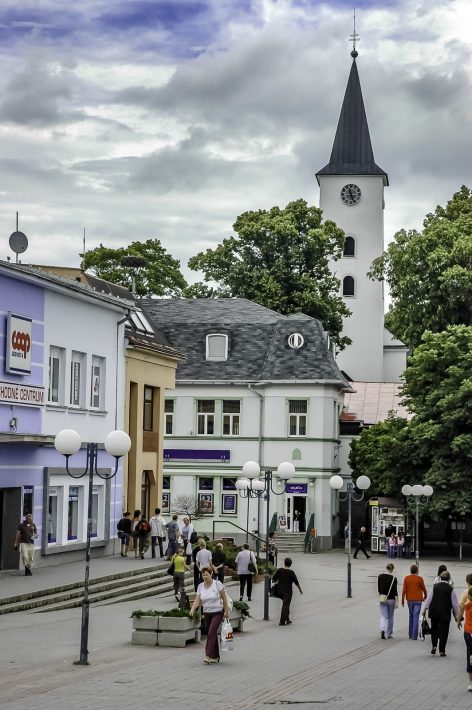
Namestovo is odd because it doesn’t really have a square as much as it has an L.
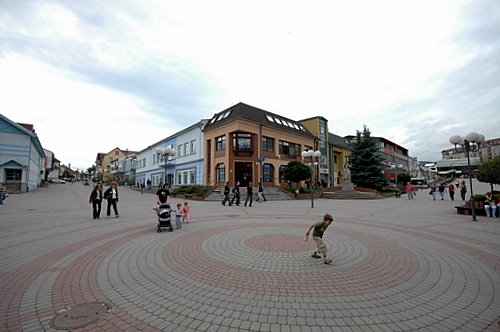
Slovaks, like many Europeans, think nothing of a beer with friends at 10:30 in the morning. I think it’s more common the further east one travels, but I do seem to remember reading about folks in Spain having brunch with a beer.
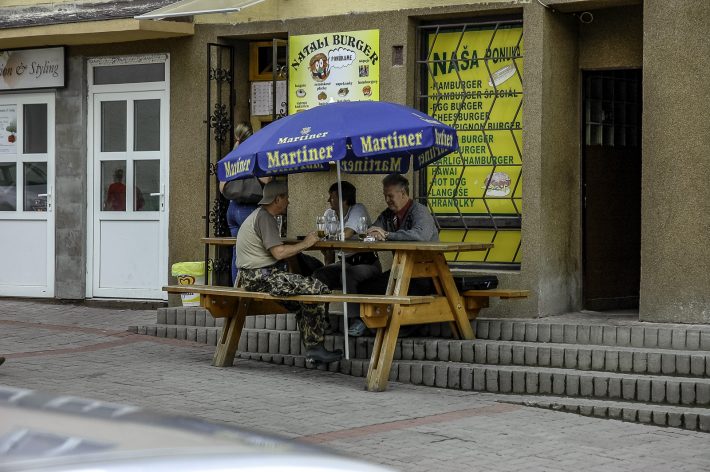
We walked around for just long enough for us all to be surprised that it was already 12:00. Lunch — and swings.
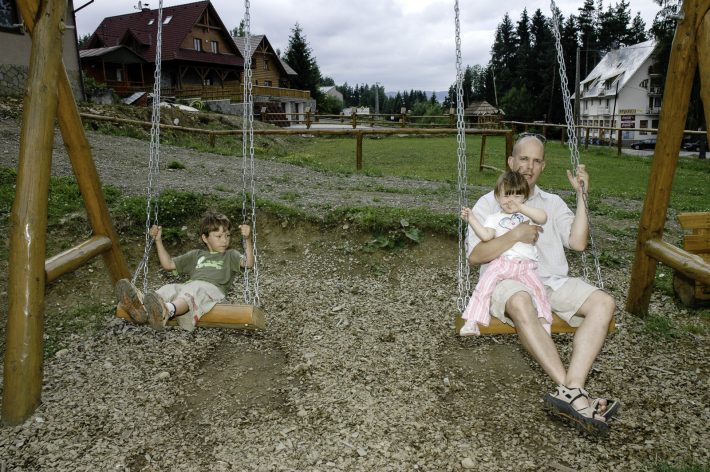
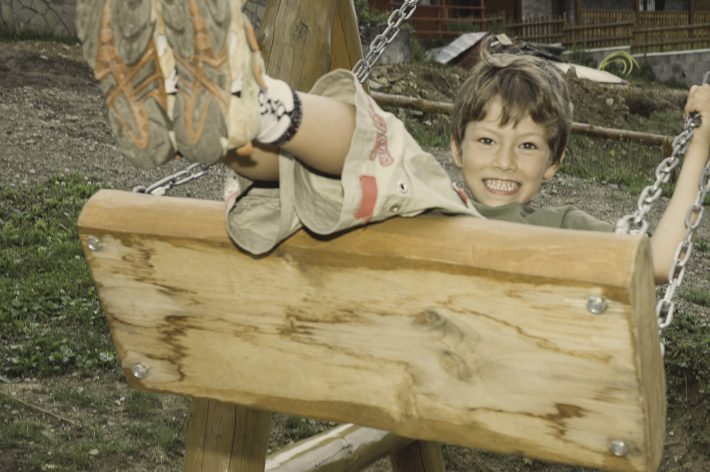
Everyone else was talking about what to eat — well, K was talking to the two kids who can express their desires verbally — but I knew from the moment we decided to spend the day in Slovakia: bryndzowe halusky.
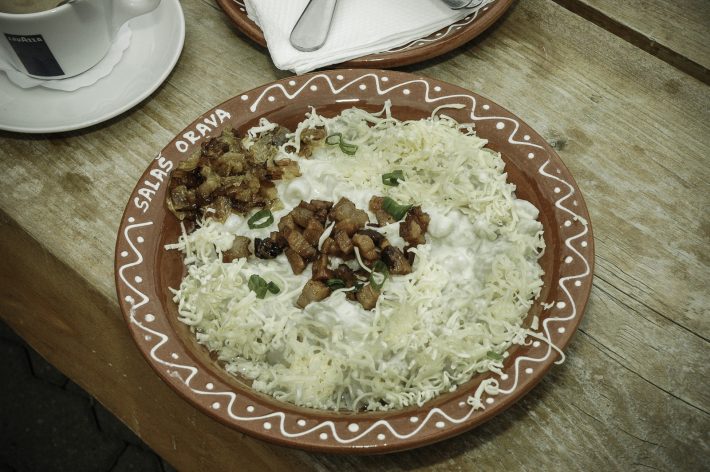
Basically, it’s dumplings in a creamy sauce, with this particular version having bacon bits and onions added. Smooth, tangy, creamy — I could eat a bucket of this stuff!
I’ve already told K that we’ll have to cross the border once more for a second helping!
Afterward, it was time to take the kids on a boat ride.
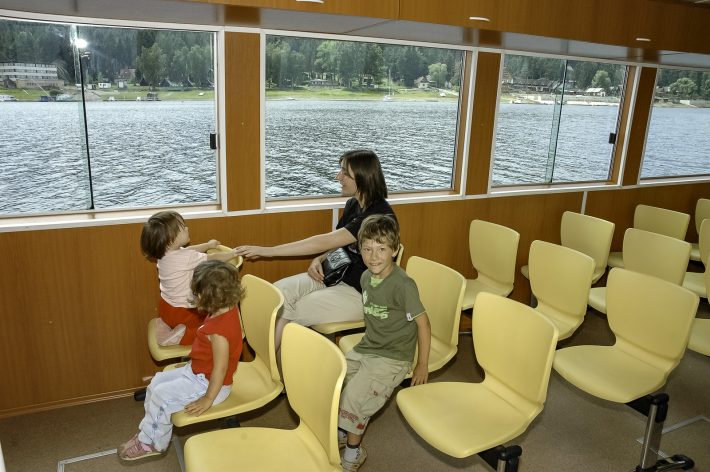
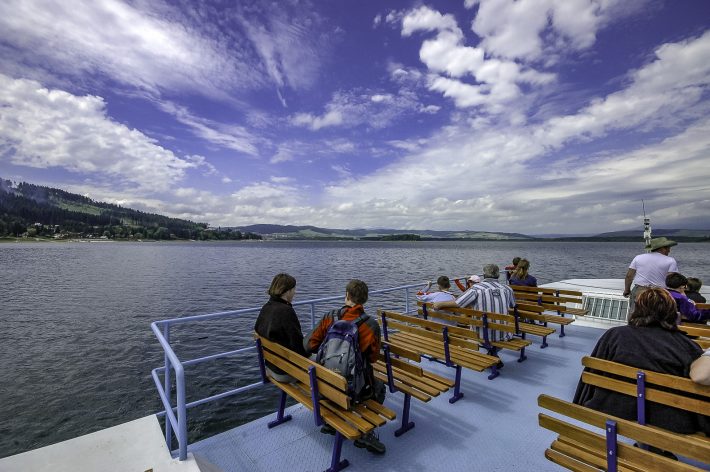
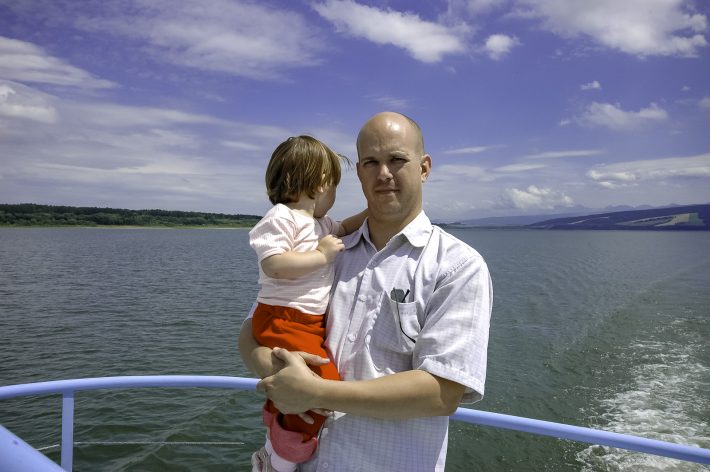
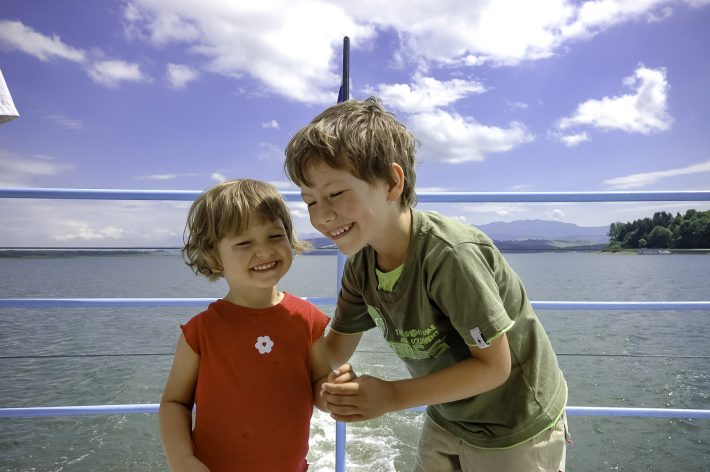
Lake Orawa is an artificial lake. Beneath its waters lie four villages.
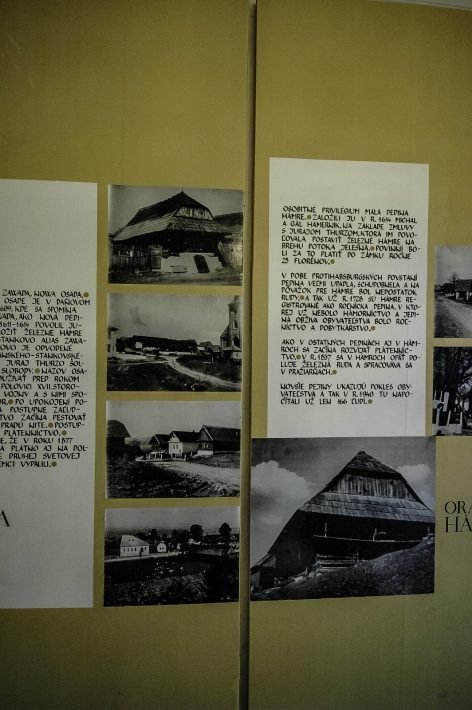
In the middle of the lake stands an island with the only surviving remnants of antediluvian Orawa.
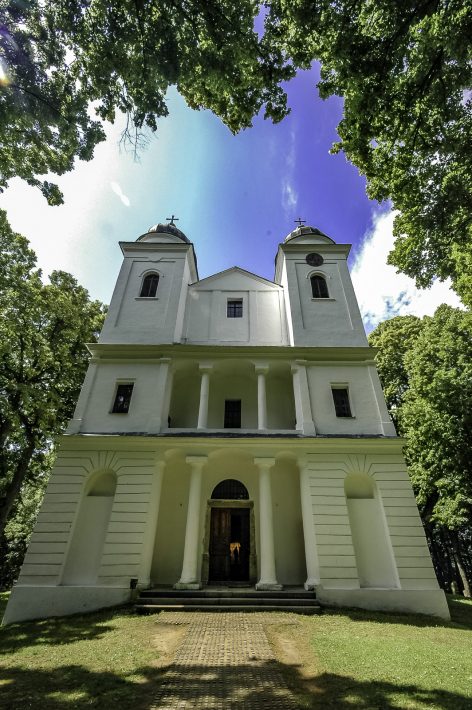
A surprisingly-large church that’s been converted to a museum. (We took Nana and Papa here, before they were “Nana” and “Papa”. It was a gloomy day in comparison.)
On the way back, we got a good look at Namestovo.
Odd — it’s now a lake-front town; pre-flood Namestovo would have been a mountain-top town.
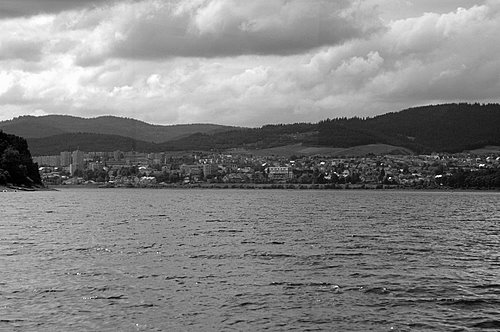
It had always been my understanding that Namestovo more or less was created for the relocation of all those displaced by the creation of the lake. K assures me that it’s not, and there’s no mention of it in Wikipedia. Besides, K made a great point about communist architecture at the time: “Come on — if it had been all built at once, every building would have been identical.”
When we returned to shore, we took a few pictures. It’s fairly obvious the two youngest cousins are getting along swimmingly.
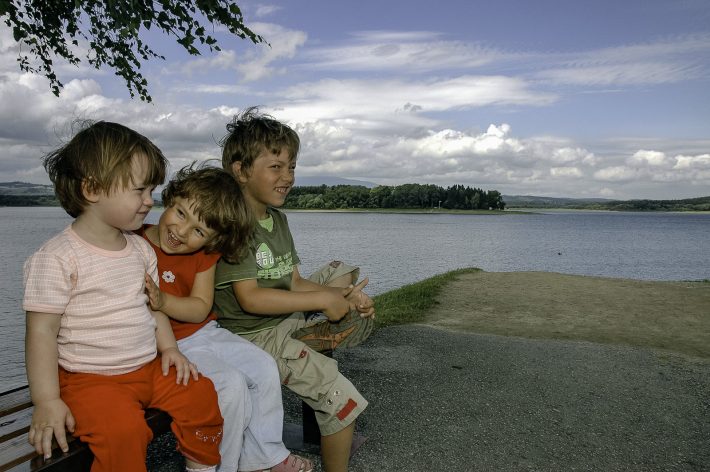
It’s hard to believe that, despite the similarity in size, Cousin S is over a full year older than L. “She’s a brick,” everyone says.
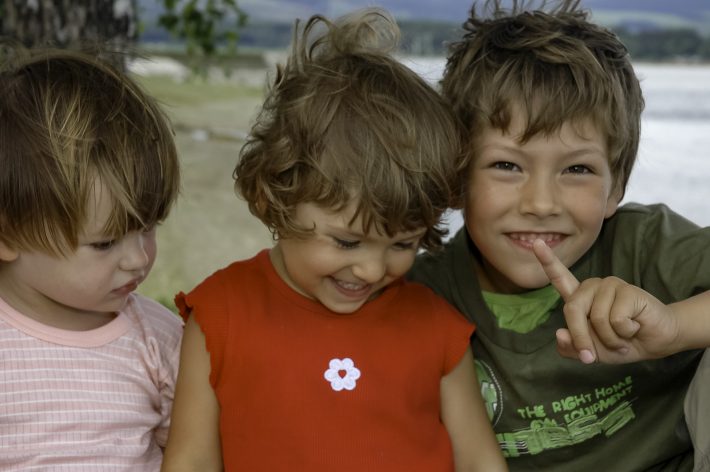
On the way back, we stopped in Bobrov — the Slovakian last town on the Slovakian/Polish border when you cross the border at Winiarczykowka, the small border crossing at Lipnica Wielka.
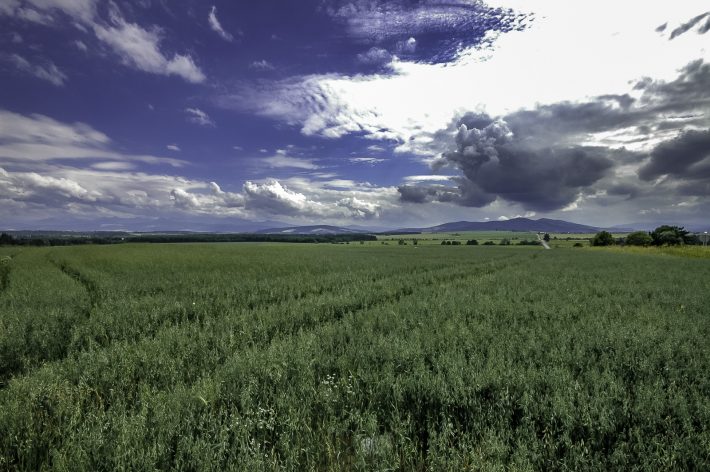
I’d cycled this way countless times when I lived in Poland. Of course, they’ve redone the road in the meantime, which would have made my favorite ride even better: by the time I got to the end of this road on a road bike, I often had to take a break, not because I was tired but because my forearms ached from riding over such a rough road
We also got a clear indication of just how rural this area is:
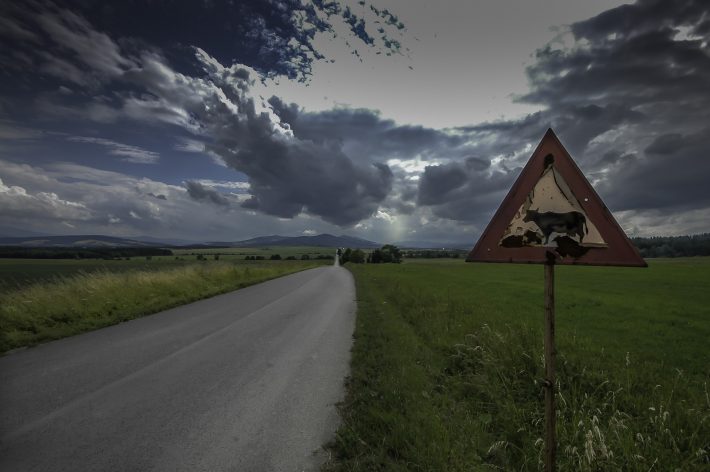
The view from the Polish side of the border wasn’t much different.
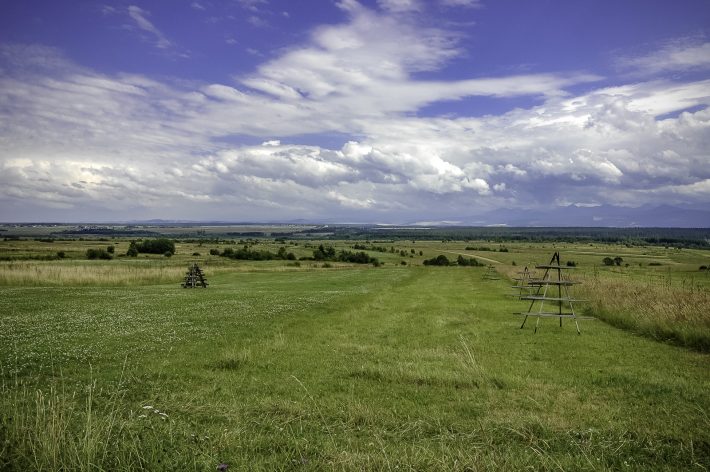
Borders are such strangely arbitrary things. This area is particularly odd. There are masses in Slovakian in the church in Jablonka, yet Slovakian cuisine is really radically different than Polish, even at the borders. The languages are similar (Poles tend to think Slovakian sounds like Polish baby-talk) but the mentalities are different.
When we got home, it was time for the youngest cousins to complete their evening rituals.
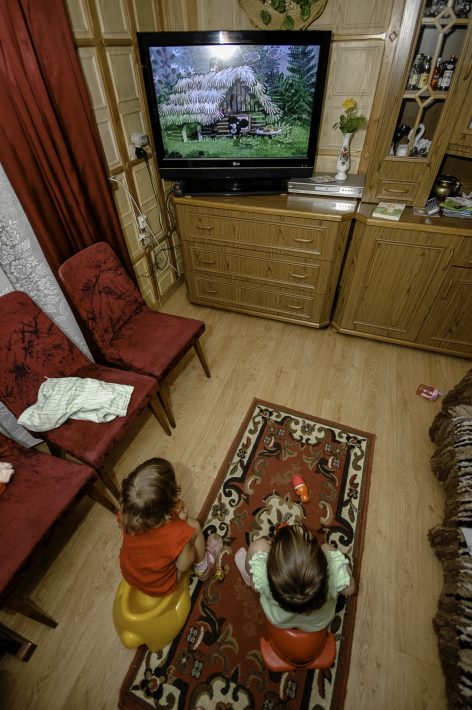
The cartoon they were watching is a Czech cartoon about a little mole who has various adventures with rockets and pregnant rabbits. (He helps birth three rabbits in a rather graphic scene.)
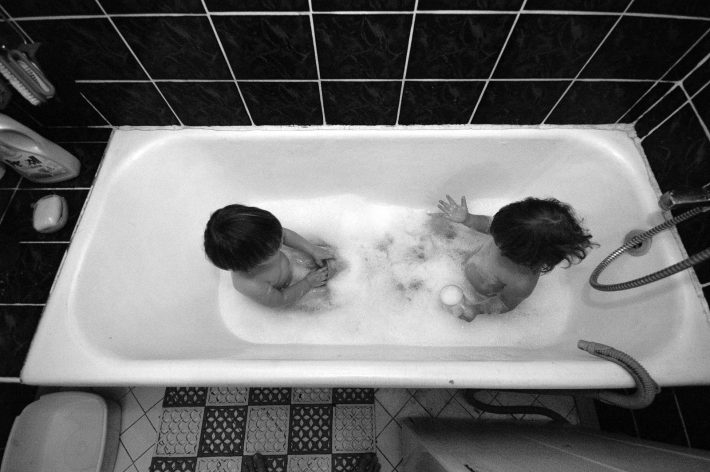
As I said, they’re getting along swimmingly.